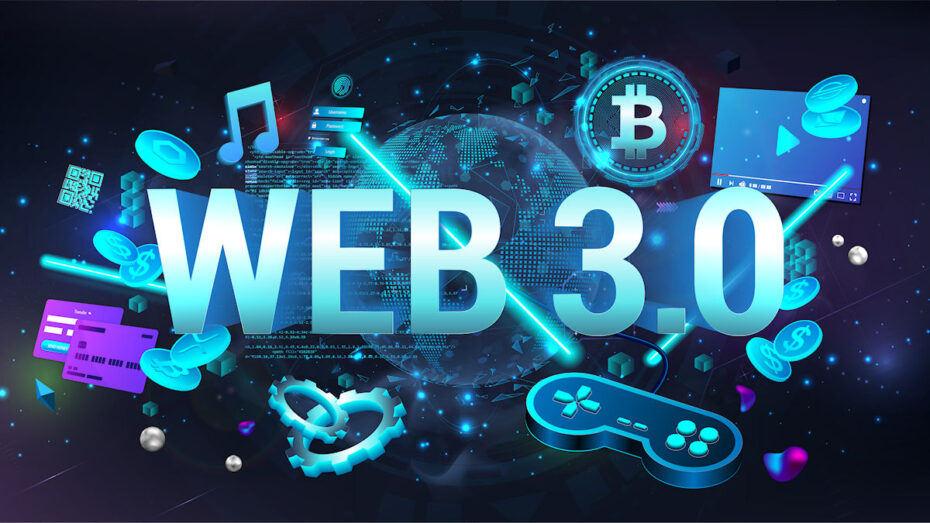Cloud computing — a process of storing and accessing data and computing services over the internet — is one of the biggest revolutions in the history of the internet. It allows computing services (including servers, storage, databases, networks, software, analytics, and intelligence) to be delivered through the internet wherever and whenever they are needed. Globally, enterprises are swiftly adopting cloud computing services, especially after the Covid-19 pandemic, to reduce costs, mitigate risks, and achieve higher scalability. For example, Amazon’s sales of its cloud platform Amazon Web Services recorded a year-on-year growth of 37% to reach $62.2B in 2021, compared with 30% in 2020.
Although cloud computing provides significant benefits in the form of reduced hardware and maintenance costs, flexibility, and greater global reach and scalability, privacy and security continue to be key drawbacks deterring its wider adoption. Therefore, to overcome these key concerns, enterprises are considering integrating cloud computing with blockchain, which is popular for attributes such as security, decentralization, and transparency.
In this article, we’ll look at the cloud services that are offered by Amazon, Microsoft, and Google, and we will examine how these companies are delving into Web3/blockchain development through their cloud services.
Major tech giants and their cloud service offerings
While there are several cloud service providers globally, in this article, we focus on these three major tech giants, as they collectively account for most of the global cloud computing market. According to US-based Synergy Research Group, together, Amazon, Google, and Microsoft accounted for 65% of the global cloud infrastructure market (outside China) in Q1’22. Amazon accounted for one-third of the total market share followed by Microsoft (22%) and Google (10%).
Amazon Web Services
Amazon Web Services (AWS) is a cloud services platform offered by Amazon.com. AWS is the global leader in the cloud computing business, offering a variety of services, including computing, storage, and databases for emerging technologies such as machine learning and artificial intelligence. It caters to the needs of startups, large enterprises, and leading government agencies.
AWS started as an internal cloud offering but has emerged as a publicly available cloud platform that is highly reliable, scalable, and low-cost, fueling businesses in 190 countries globally. Some of its key cloud services include Amazon EC2, Amazon Simple Storage Service, Amazon Aurora, Amazon DynamoDB, Amazon RDS, AWS Lambda, Amazon Virtual Private Cloud, Amazon Lightsail, and Amazon SageMaker.
Microsoft Azure
Microsoft Azure, formerly known as Windows Azure, is the second-largest cloud platform after AWS, used by over 95% of Fortune 500 companies. It provides a wide array of solutions tailored to different industries, including retail, financial services, gaming, manufacturing, healthcare, and media and entertainment.
It offers cloud services in four different forms, including infrastructure as a service (IaaS), platform as a service (PaaS), software as a service (SaaS), and serverless. Some of its popular products are Azure SQL, Azure Cosmos DB, Azure DevOps, Azure Backup, Microsoft Defender for Cloud, Azure Kubernetes Service, Azure Cognitive Services, Azure Arc, Azure Quantum, Azure Functions, App Service, Azure Virtual Desktop, and Virtual Machines.
The adoption of Microsoft Azure is increasing because it is becoming the preferred choice for organizations that already use Microsoft products. By offering tailored solutions, Microsoft-centric enterprises are able to switch to a cloud or hybrid-cloud environment very smoothly. In addition, companies with a Microsoft Enterprise Agreement are also offered discounts on licensing for Azure. Apart from Windows-based services, Azure also supports open-source languages, technologies, and platforms.
Google Cloud Platform
The Google Cloud Platform (GCP) is Google’s cloud offering. Initially launched to support its own services, such as Google Search and YouTube, it was later expanded to offer enterprise services. At present, the platform offers over 150 services, spanning computing, networking, storage, and data analytics among others.
While GCP is the smallest of the three, it is growing at a rapid pace by providing robust integrations with open-source projects and third-party services. Some of its featured products are Compute Engine, Cloud Storage, Cloud SDK, Cloud SQL, Google Kubernetes Engine, BigQuery, Cloud CDN, Dataflow, Operations, Cloud Run, and Anthos.
The following table highlights the key differences between these three cloud service providers.
Blockchain-/Web3-based offerings from Amazon, Microsoft, and Google
Let us look at what these companies are doing in this space.
Amazon: AWS announced the general availability of its Amazon Managed Blockchain (AMB) service in April 2019. The service makes it easy to join public blockchain networks or create and manage scalable private blockchain networks using open-source frameworks. While the service initially supported the Hyperledger Fabric framework, it later launched Ethereum support in March 2021.
Some of the customers of Amazon Managed Blockchain are Singapore Exchange, OpenZeppelin, Nestlé, Curvegrid, Compound, Healthdirect, and Liberty Mutual.
AMB makes it easy for customers to cost-effectively create and manage secure blockchain networks. Customers simply choose their preferred framework (Hyperledger Fabric or Ethereum), add network members, select member nodes that process transaction requests, and deploy their applications. AMB handles the rest, including creating a blockchain network and configuring the software, security, and network settings.
Other blockchain-related services offered by AWS include Amazon Quantum Ledger Database (QLDB), a fully managed ledger database that provides customers with a centralized ledger, offering immutable, transparent, and cryptographically verifiable transaction logs for auditing and record-keeping purposes. In addition, AWS also offers over 70 blockchain partner solutions on the AWS Marketplace.
Microsoft: Azure Blockchain Service, Microsoft’s fully managed blockchain service, was launched in May 2019. However, the company retired Azure Blockchain Service in September 2021. Following this, the firm started offering Quorum Blockchain Service (QBS), a managed blockchain service, in collaboration with blockchain-technology provider ConsenSys. QBS runs as a managed application from customers’ Microsoft Azure accounts and can be easily deployed from the Azure Marketplace. QBS allows enterprises to configure, deploy, and manage blockchain networks.
Other blockchain-related products offered by Microsoft include Azure SQL Database Ledger, which incorporates the cryptographic patterns used in blockchains to make information in databases tamper-proof. Microsoft is also offering Azure Confidential Ledger in a preview stage. The service provides a managed and decentralized ledger for data entries powered by a consensus-based blockchain.
Google Cloud Platform: At present, Google Cloud does not offer any blockchain services. Instead, it offers tools and infrastructure services to Web3 companies. Its Web3 solutions, including Virtual Private Cloud, Google Cloud KMS, Firebase, Google Kubernetes Engine, Cloud Run, and Spanner, are being used by several Web3 and blockchain companies, such as Dapper Labs, Hedera, Solana, Blockdemon, and Theta Labs.
Recent developments with respect to blockchain/Web3 support provided by these three giants
New partnerships scale up their businesses further :
Cloud service providers are partnering with blockchain and Web3 companies to scale up their businesses further. In October 2022, Google Cloud partnered with Near Protocol, a decentralized application platform, to provide infrastructure for Near’s Web3 startup platform, Pagoda. In September 2022, a similar partnership was initiated with Binance’s smart contract blockchain platform BNB Chain, enabling BNB Chain ecosystem participants to access Google Cloud services.
In January 2022, Google Cloud collaborated with TickerPlant, a leading content provider, to further develop TickerPlant’s CryptoWire ecosystem by leveraging Google Cloud’s data infrastructure, data analytics, machine learning, and artificial intelligence services. In June 2022, Google Cloud expanded its partnership with blockchain data analytics platform Nansen to further enhance Nansen’s data management capabilities. As part of the partnership, Nansen will leverage Google Cloud’s services to present its customers with a consolidated view of their portfolios across multiple Web3 native wallets.
Furthermore, in September 2022, Google Cloud partnered with Sky Mavis, a technology-focused game studio, to operate as a validator for the blockchain gaming network. Google Cloud will contribute to the overall security and governance of the network by running and overseeing a validator node. During the same month, Google Cloud partnered with Fortress Blockchain Technologies for the launch of The Fortress Vault, a nonfungible token database solution built on Google Cloud’s infrastructure.
Continued investments in Web3 platforms by Microsoft:
In September 2022, decentralized Web3 data platform Space and Time raised $20M in a strategic funding round led by Microsoft’s venture fund M12. On a similar note, Microsoft was among the lead investors in the $450M funding round of blockchain software technology company ConsenSys.
In August 2022, Microsoft provided a grant to StarHeroes, a blockchain-based Web3 game. The game was also provided access to Microsoft’s Azure PlayFab, a backend platform for building and operating live games.
Creation of new business units and dedicated teams by Google:
Google is forming new business units and teams to augment the services it provides the emerging blockchain and Web3 space. For instance, in January 2022, Google Cloud set up a dedicated Digital Assets Team to support its customers in building, transacting, and storing value and deploying new products and services on blockchain-based platforms. In May 2022, Google Cloud created a Web3 team to build services that help Web3 developers.
Launch of products and services:
In October 2022, Google partnered with Coinbase to enable some of its cloud computing clients to make payments in cryptocurrencies, starting from early 2023. This will enable Google to target crypto and Web3 companies that wish to make and accept payments in cryptocurrencies. As part of the partnership, Google will also explore Coinbase Prime’s service for cryptocurrency assets management.
In September 2022, Amazon was selected as one of five strategic partners by the European Central Bank for the launch of the digital Euro. The company will offer infrastructure support for the digital Euro app. Meanwhile, in January 2022, AWS announced support for Hyperledger Fabric v2.2, which comes with advanced chaincode management and data-sharing features.
Integration of blockchain and cloud computing — a win-win solution for both industries
The cloud computing and blockchain industries observed robust growth over the past few years due to the growing demand by businesses for cost-effective, highly scalable, secure solutions.
Let us consider a use case and see how blockchain solutions reduce the complexities of a traditional method of letter of credit (LC) transaction With respect to cloud services. An LC is a promissory note used in international trade, which ensures that the payment is made once all the transaction conditions are met. In general, an LC involves several parties checking the same documents several times throughout the transaction period. In a bid to overcome these inefficiencies and bottlenecks, Capgemini has produced a solution that is based on Amazon Managed Blockchain and other AWS services. The blockchain-based solution reduces the LC processing time from a few days to a few hours. The shared, decentralized ledger allows parties to access the documents and make updates in real time, eliminating the need for emailing, faxing, and mailing processes that characterize traditional procedures.
From the above example, it is evident that the blockchain technology enables banks and financial institutions to eliminate the need for verification from third parties. As a result, there is a reduction in slow payments, penalties, and additional fees.
Therefore, we can infer that the groundbreaking development of cloud computing and blockchain will enable companies to offer solutions that combine the security of blockchain with the convenience of the cloud, helping startups to explore opportunities in Web3, decentralized finance (DeFi), and other sectors. With players in both industries finding a common interest, and cloud service pioneers such as Amazon, Google, and Microsoft increasingly embracing blockchain-based cloud computing services, the cloud services market will continue to grow in the next few years.
Source: GlobalData








